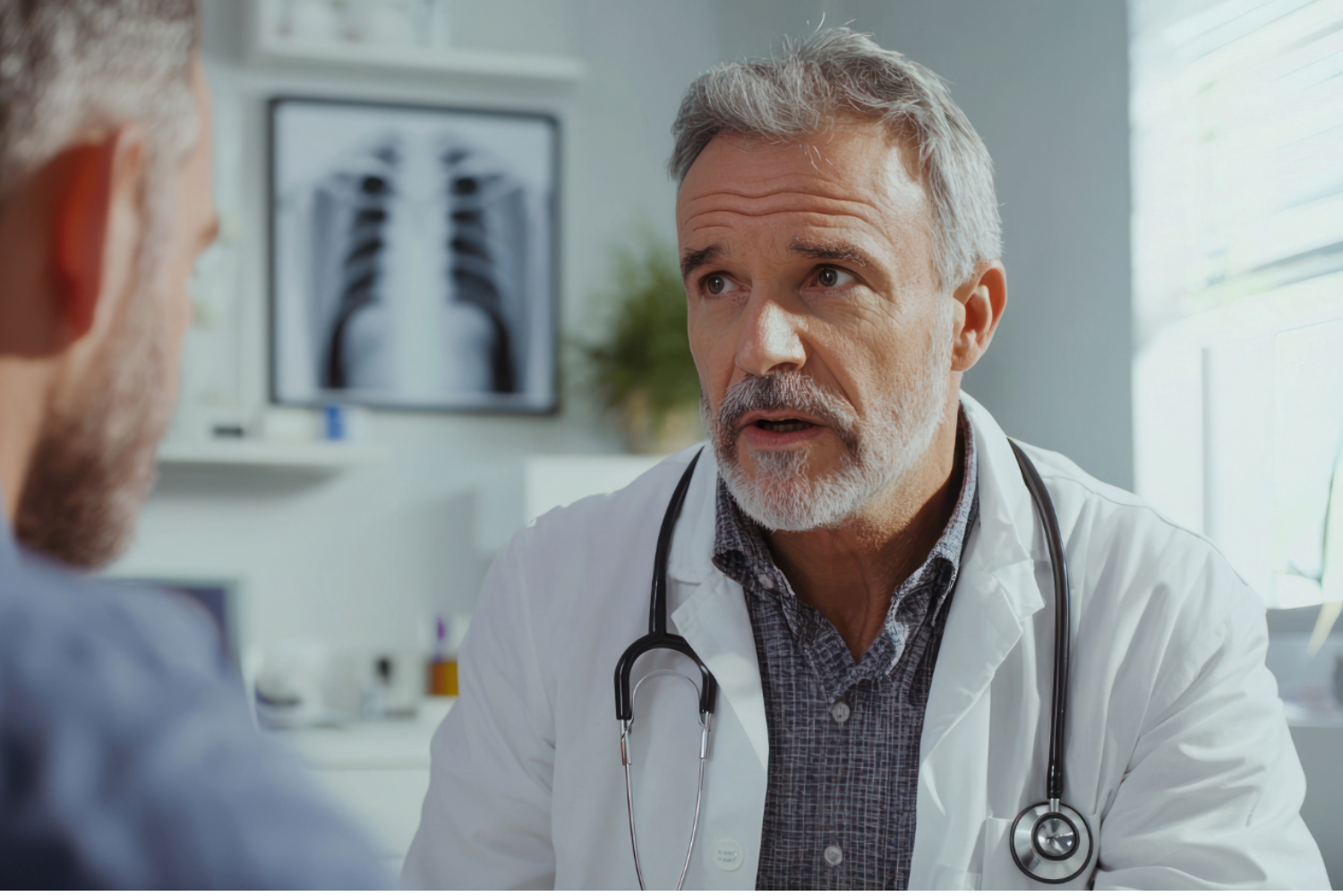News
A Glance At Your Gland
You're in your 20s and loving life. You ski hike bike and get outside to play in the mountains whenever possible. You eat healthily don't drink too much and get plenty of sleep. Yet you're always tired and you're gaining weight. It just doesn't make sense.
Does any of this sound familiar? It could be your thyroid. The thyroid is a gland in the neck that produces a hormone affecting many organs in the body including the heart liver and muscles. If your thyroid is under producing a condition called hypothyroidism there are indeed symptoms but they may take a while to present themselves. "Everything slows down says a local physician.
The symptoms may vary depending on the age of onset the duration and severity of the deficiency. Some of the early symptoms may include general fatigue or cold intolerance. The hair may fall out or become coarse. The skin is often dry and rough. Due to this slowdown in metabolism patients may gain some weight in spite of no dietary change. The bowels slow down and patients often complain of constipation. From a psychological standpoint these patients may start to feel a little 'blue' or have clinical depression.
Sometimes it's impossible to know exactly what is causing the thyroid to be underactive. It is not caused by your lifestyle or anything you are or aren't doing. One of the most common causes of hypothyroidism is chronic autoimmune process.
This is when you develop antibodies against your own thyroid. It's genetic. It can just turn on ... similar to when you develop antibodies when you get sick that work against bacteria except this is working against your own tissue Manganelli says.
A mystery of genetics women are eight times more likely than men to develop hypothyroidism and may have additional symptoms such as irregular menstruation or fertility difficulties while men may suffer from decreased libido or sexual function.
On the opposite end of the spectrum is hyperthyroidism five times more likely to develop in women than men in which there is an excess of thyroid hormone in the body. The most common cause is again an autoimmune process this one called Graves' Disease. More common in younger women Graves Disease is when your antibodies rather than destroying the thyroid and causing it to under produce as in hypothyroidism actually stimulate the gland. Less common causes for both hypo and hyper thyroid include thyroid inflammation certain medications and excessive consumption of iodine. Symptoms of hyperthyroid are nearly the opposite of those of hypothyroid.
VVMC Endocrinology staff see a lot of hyperthyroidism and the symptoms are usually more dramatic. Patients are often very uncomfortable. They may feel very anxious jumpy or jittery and they may be losing weight in spite of an increase in appetite. They may be very heat intolerant and perspiring a lot. They are just so hyper that their heart is racing and they may be very short of breath. They may also have muscle weakness a decrease in stamina or insomnia as well.
Although thyroid disorders are not caused by lifestyle choices such as what you eat or how much exercise you get it's important to note that the active high elevation lifestyle shared by most Vail Valley residents and visitors can exacerbate the symptoms of thyroid disease.
With hyperthyroid you're already working way too hard so when you add altitude to it and exercise you're putting yourself at real risk says a local physician. "We saw a patient the other week a woman in her 20s who came in to town to meet a friend. She collapsed while she was having dinner. She was discovered to be hyperthyroid and probably managed it in New York but skiing and the elevation was too much. Those with hypothyroid are already fatigued and when they come up to this altitude they may not become toxic like hyperthyroid patients but they're going to feel so much more fatigued. They're going to have a hard time with exercise and stamina. It's hard to overcome that. It's hard on the body.
It's true that the thyroid needs iodine to function properly and in rare cases excessive or deficient amounts of iodine can lead to hypo or hyperthyroid disease but this is not common in the United States. The VVMC Endocrinology staff recommend that individuals aim for the Recommended Daily Allowance of iodine perhaps slightly more for pregnant women.
Another natural substance a trace mineral called selenium helps with thyroid health but as far as treatment for thyroid disorders there are no natural cures.
The only way to treat thyroid hormone deficiency is to replace it with a daily thyroid hormone pill. Hypothyroidism can be diagnosed by a physical exam which may include an enlarged thyroid gland or goiter in addition to a simple blood test. It may take a little time to find the right dose for the patient but patients do start to feel significantly better.
Treating hyperthyroidism can be a little more difficult because the hormones that have already been over-produced cannot be removed. However there are pills that can block future production of thyroid hormone or a one-time dose of radioactive iodine which essentially destroys the thyroid gland. Surgery is sometimes used to treat it in rare situations.
If left untreated hypothyroid patients will progressively feel more fatigued may continue to gain weight and generally feel lousy. It takes a long time for the thyroid hormone levels to become dangerously low.
Consequences can be much more serious if hyperthyroidism goes untreated. Untreated hyperthyroidism can progress rapidly to a toxic state with complications that can lead to cardiac arrhythmias shock or rarely death." says physician.
No doctor is ever going to discourage a healthy diet and an active lifestyle especially for patients with hypothyroid issues. As far as exercise for hyperthyroid patients especially in a place like Vail where people have a tendency to be overactive doctors have specific guidelines to make sure they're not overdoing it.
For patients with hypothyroidism the team at VVMC Endocrinology advise a healthy calorie-controlled diet and exercise to maintain metabolism. With hyperthyroid patients the body is already working out without them knowing. Once they have their thyroid under control they can work out preferably with a trainer to establish a safe exercise program to start to increase the muscle mass that may have been lost during their hyperthyroid state.
Thyroid Disorder Facts
- According to the National Endocrine Information Service
- Hyperthyroidism is when there is an excess of thyroid hormone in the body. Women are five times more likely than men to develop it.
- Hypothyroidism is when the thyroid under-produces making bodily systems slow down. Women are eight times more likely than men to develop it.
- 4.6 percent of Americans have hypothyroidism and 1 percent has hyperthyroidism.
- Different thyroid diseases occur at different ages.
- Women are much more likely than men to develop hypo or hyperthyroidism and women 60 and older are at the most risk.
- They are not caused (or cured) by diet or lifestyle.
- Causes are often hard to identify but can be genetic autoimmune-related caused by surgery radiation exposure to iodine pregnancy or certain types of medication.
- Hypothyroidism is cured by a daily dose of thyroid hormone medication while hyperthyroidism is cured by daily thyroid hormone blocking medication one-time radioactive iodine treatment or surgery.
- If untreated hypothyroidism can cause obesity joint pain infertility and hyperthyroidism can cause heart issues strokes and even death.
- If untreated during pregnancy thyroid disorders increase the risk of miscarriage pre-term delivery and may affect the baby's growth and brain development.
Learn more by calling VVMC Endocrinology at (970) 477-5160 or visit vvmc.com/endo
More News
-
New!
More

Screening Secrets: What Every Man Should Know About Prostate Cancer Screening
Prostate cancer is the most common type of non-skin related cancer in men, and it is the second leading cause of cancer-related deaths in men within the United States, behind lung cancer. Fortunately, if caught early, prostate cancer remains highly treatable and curable with minimally invasive procedures.
-
New!
More

Unplug to Recharge: Why a Digital Detox Is the Real Power Move for 2026
Our phones promise connection, convenience and control, yet most of us feel more scattered, stressed and sleepless than ever. The constant pings, scrolls and notifications have rewired our brains for distraction. The fix? Not abandoning technology altogether, but reclaiming balance.
-
New!
More

Beyond the Scale: Why Nutrition and Exercise Work Better Together
For decades, weight loss advice has been distilled into a simple equation: calories in, calories out. Eat less, maybe combine that with exercise, and the pounds will fall away. But according to experts at Vail Health, that equation overlooks a much bigger picture.





